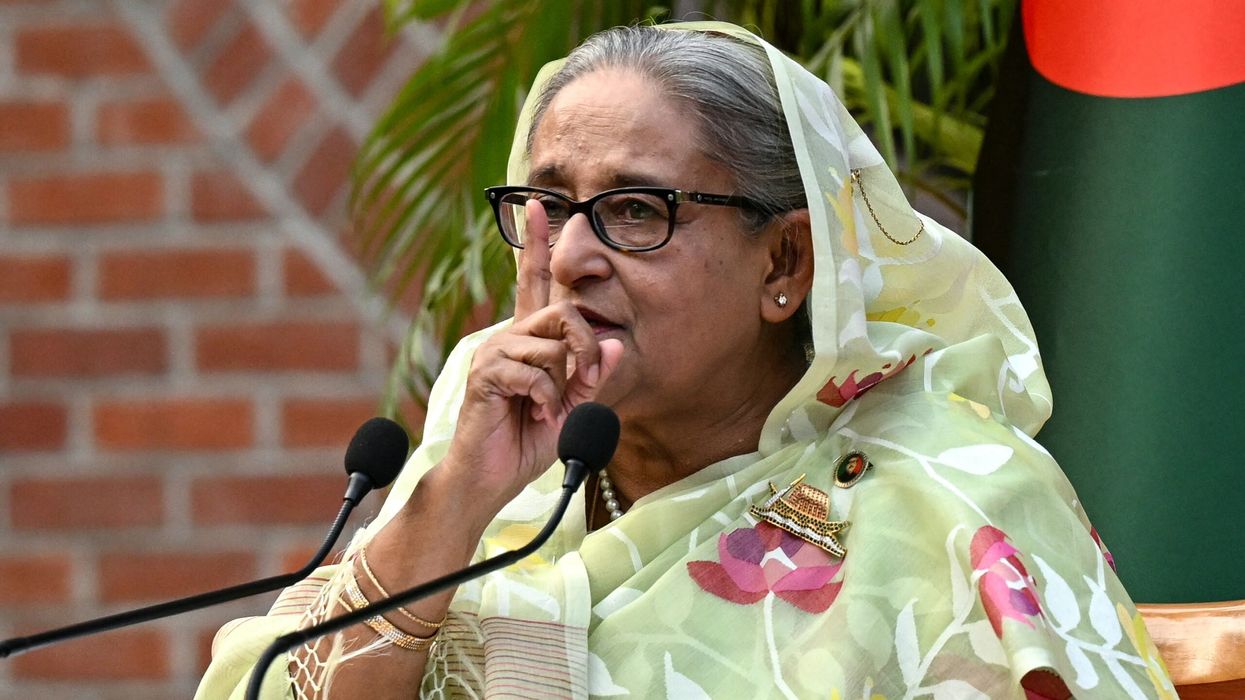INDIA has suspended the Indus Waters Treaty (IWT) with Pakistan and taken other diplomatic measures after gunmen killed 26 people, mostly tourists, in Pahalgam in Jammu and Kashmir on Tuesday.
The attack, which left 25 Indian nationals and one Nepali dead, is the deadliest targeting civilians in Kashmir in 25 years. Gunmen emerged from forests and fired on the crowd using automatic weapons.
Indian foreign secretary Vikram Misri on Wednesday announced a series of diplomatic steps, including the suspension of the Indus Waters Treaty, which has governed water sharing between the two countries since 1960.
"This will remain in abeyance until Pakistan credibly and irrevocably abjures its support for cross-border terrorism," Misri said in New Delhi.
India also said it would shut the main land border crossing with Pakistan, reduce diplomatic staff, withdraw Indian personnel from Islamabad, and send Pakistani officials back.
Indian prime minister Narendra Modi said the attackers would be brought to justice. “Their evil agenda will never succeed,” he said. Funerals and candle-lit vigils have been held across India for the victims.
Pakistan has denied involvement in the attack. Deputy prime minister Ishaq Dar said Islamabad would issue “a tit-for-tat response.” Defence minister Khawaja Asif added, “A comprehensive response will be given,” and claimed that India wanted to “use this incident, which we deplore, as an excuse” to exit the water accord.
India is expected to hold an all-party political meeting on Thursday to brief top leaders. Pakistan’s foreign ministry offered “condolences to the near ones of the deceased” and said it would convene its National Security Committee, a high-level body summoned only in exceptional circumstances.
Pradeep Kumar Saxena, India’s former Indus Water Commissioner, said the treaty suspension could be a step toward abrogation. “This could be the first step towards the abrogation of the treaty, if the government so decides,” Saxena told PTI.
While the treaty has no clause for unilateral withdrawal, Saxena pointed to Article 62 of the Vienna Convention on Law of Treaties, which allows for termination in case of a fundamental change in circumstances.
Saxena said India, as the upper riparian country, has many options. With the treaty in abeyance, India is not obligated to follow restrictions such as “reservoir flushing” limitations or the monsoon-only filling of reservoirs like Kishanganga.
Filling them during Pakistan’s sowing season could impact agriculture in Pakistani Punjab, which depends heavily on the Indus system for irrigation.
The Indus system includes the Indus and five tributaries – Ravi, Beas, Sutlej (eastern rivers), and Jhelum, Chenab (western rivers).
While India has unrestricted rights over the eastern rivers, the western rivers’ waters are largely allocated to Pakistan, though India is permitted limited use for agriculture and hydroelectric power.
Design and operational restrictions on Indian projects along western rivers would no longer apply. Saxena said projects such as Salal, Baglihar, Uri, Chutak, Nimoo Bazgo, Kishenganga, Pakal Dul, Miyar, Lower Kalnai, and Ratle have faced objections from Pakistan in the past, which may now no longer be considered.
India could also stop sharing flood data with Pakistan during the monsoon, and no longer be bound by restrictions on storage or operation of reservoirs, particularly on the Jhelum. Tours of Pakistani officials to India mandated under the treaty may also be halted.
The Indus Waters Treaty was signed in 1960 after years of negotiations mediated by the World Bank.
At the time of Partition, the boundary between India and Pakistan split the Indus Basin, with India controlling critical headworks.
The treaty allowed India full use of the eastern rivers and limited use of the western ones, with specific conditions.
India had already sent a formal notice last year seeking a review and modification of the treaty.
(With inputs from agencies)


















 Kujur's transformation began when he joined the Reliance Foundation programme in December 2022
Kujur's transformation began when he joined the Reliance Foundation programme in December 2022


